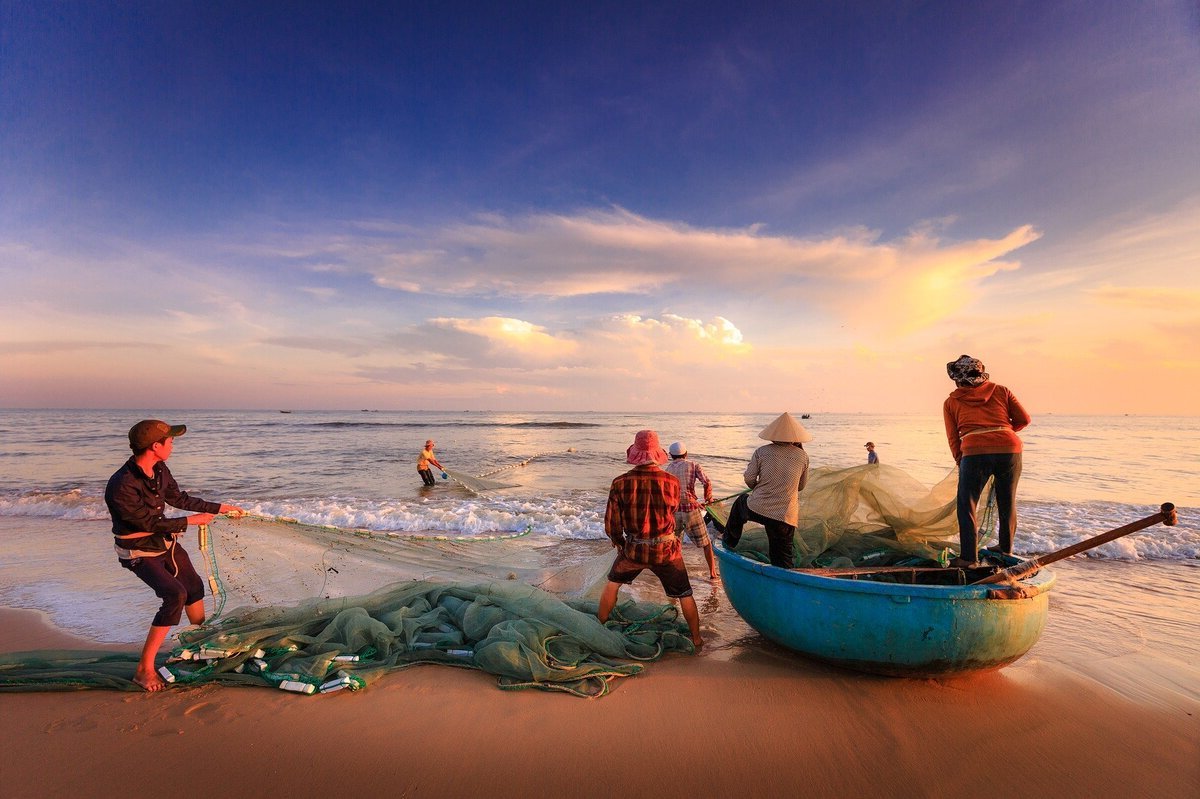
Fishing has been a vital part of human life for centuries. From ancient times to modern days, it provides food, jobs, and recreation. Did you know that the fishing industry employs over 59 million people worldwide? That's a lot of folks casting nets and lines! Fish is also one of the most traded food commodities globally, with an export value of over $150 billion. This industry isn't just about catching fish; it involves processing, marketing, and even conservation efforts. Ever wondered how much fish people eat? On average, each person consumes about 20 kilograms of fish annually. Let's dive into 22 fascinating facts about the fishing industry that will hook your interest and reel you in!
The Global Reach of the Fishing Industry
Fishing is a vital part of many cultures and economies around the world. Let's dive into some fascinating facts about this industry that spans continents and oceans.
- The fishing industry employs over 59 million people worldwide.
- China is the largest producer of fish, contributing to nearly 35% of the world's total fish production.
- The global fish trade is valued at over $150 billion annually.
- Norway is the leading exporter of salmon, a highly sought-after fish in global markets.
- The United States imports more seafood than any other country, with shrimp being the most popular.
Environmental Impact of Fishing
Fishing has significant effects on marine ecosystems. Here are some key points to consider about its environmental footprint.
- Overfishing has led to the depletion of 33% of the world's fish stocks.
- Bycatch, the capture of unintended species, accounts for about 10% of the global catch.
- Bottom trawling, a common fishing method, can destroy seabed habitats and coral reefs.
- Sustainable fishing practices are being adopted to mitigate environmental damage, with certifications like MSC (Marine Stewardship Council) gaining popularity.
- Aquaculture, or fish farming, now provides over 50% of the fish consumed globally, reducing pressure on wild fish populations.
Technological Advances in Fishing
Technology has revolutionized the fishing industry, making it more efficient and sustainable. Here are some technological advancements shaping the future of fishing.
- GPS and sonar technology help fishers locate schools of fish more accurately.
- Drones are being used to monitor fish populations and illegal fishing activities.
- Smart nets equipped with sensors can reduce bycatch by allowing non-target species to escape.
- Blockchain technology is being used to trace the journey of fish from ocean to plate, ensuring transparency and sustainability.
- Automated feeding systems in aquaculture improve efficiency and reduce waste.
Economic Importance of Fishing
Fishing is not just about catching fish; it plays a crucial role in the global economy. Here are some economic aspects of the fishing industry.
- Small-scale fisheries provide livelihoods for over 90% of the world's fishers.
- The fishing industry contributes significantly to the GDP of many coastal countries, such as Iceland and the Philippines.
- Recreational fishing generates billions of dollars annually, supporting tourism and local economies.
- Fish is a major source of protein for over 3 billion people worldwide.
- The seafood processing industry creates millions of jobs, from filleting to packaging.
Challenges Facing the Fishing Industry
Despite its importance, the fishing industry faces numerous challenges. Here are some of the most pressing issues.
- Climate change is affecting fish populations and migration patterns, making it harder for fishers to predict catches.
- Illegal, unreported, and unregulated (IUU) fishing accounts for up to 26 million tons of fish annually, undermining conservation efforts and economic stability.
The Final Cast
Fishing isn't just about catching fish. It's a way of life for millions, providing food, jobs, and recreation. From the vast oceans to local lakes, the fishing industry plays a crucial role in our world. Understanding its impact helps us appreciate the hard work behind every catch and the need for sustainable practices.
Whether you're a seasoned angler or just curious, these facts shed light on the industry's importance. Next time you enjoy seafood or cast a line, remember the journey that brought that fish to you. Let's support efforts to keep our waters healthy and our fishing practices responsible.
Fishing connects us to nature and each other. By staying informed, we can ensure this age-old tradition thrives for generations to come. So, grab your rod, respect the waters, and happy fishing!
Was this page helpful?
Our commitment to delivering trustworthy and engaging content is at the heart of what we do. Each fact on our site is contributed by real users like you, bringing a wealth of diverse insights and information. To ensure the highest standards of accuracy and reliability, our dedicated editors meticulously review each submission. This process guarantees that the facts we share are not only fascinating but also credible. Trust in our commitment to quality and authenticity as you explore and learn with us.


